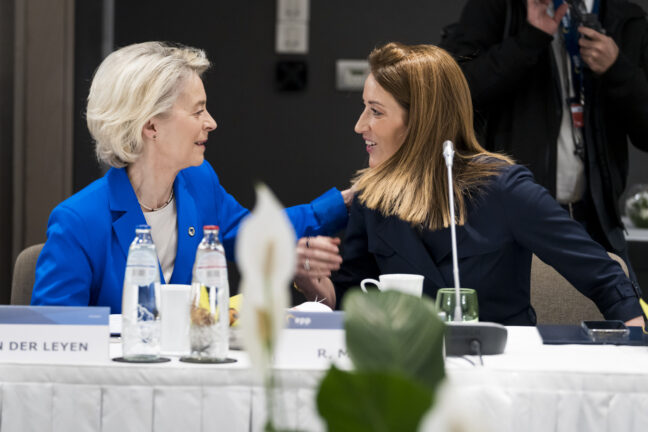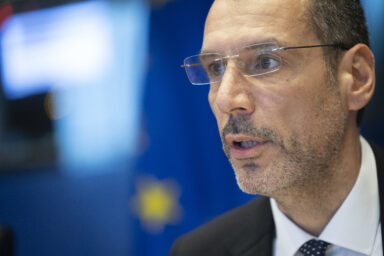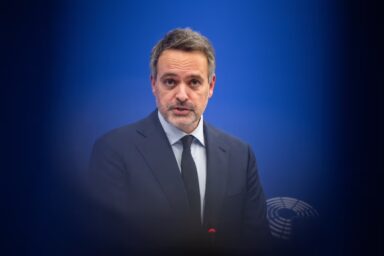The European Commission is set to make legal adjustments to its proposed €1.8 trillion long-term EU budget for 2028–2034 (MFF) in a bid to win over a skeptical European Parliament that is set to pass a resolution that rejects parts of of the seven-year Commission’s proposal on 12 November. A meeting between Parliament Chair Metsola and Commission President Von der Leyen on Monday will show just how much the EU executive is willing to change in order to appease lawmakers.
Von der Leyen is set to meet with Metsola and Denmark’s Prime Minister Mette Frederiksen, representing the Danish Council presidency, on Monday. She is expected to make several concessions to the Parliament.
So far, the public statements have been vague. Following meetings with the Parliament rapporteurs on the prososal, Commissioner Piotr Serafin (Budget, Anti-Fraud and Public Administration) said last Wednesday that the Commission “reflecting on the right process” and acknowledged that “we need to think about the legal changes.”
Parliament Pushes Back
At the center of the dispute are the Commission’s proposed changes to regional and agricultural payments. Lawmakers argue that the reform sidelines regional authorities and reduces Parliament’s role in decisions on spending priorities.
Parliament’s lead negotiator Siegfried Mureșan (EPP/RO) said the current draft “is not compliant with Parliament’s position,” warning that it weakens both democratic oversight and regional input. The Parliament wants flexibility in the budget to respond to crises but insists this must not lead to unpredictability or diminished accountability. It is worried that the current proposal does not sufficiently safeguards Parliament’s role in budgetary chosies.
You might be interested
Mureșan underlined the aim should be “not just a crisis budget, but a predictable one — and Parliament must maintain a role in that flexibility.”
Commission Seeks to Reassure
Under the “national plans,” funding for agriculture and regional development — about half of the EU’s €1.8 trillion budget — would be combined into single programs run by national governments and reduce the current involvement of regional authorities. Last month the EPP, S&D, Renew and the Greens — in a rare display of unity — sent a letter to Commission demanding major changes to those plans.
Serafin sought now to calm concerns, saying that the Commission “never intended to eliminate the regions from the picture.” He underlined that the executive’s proposal refers to “national and regional partnership plans,” not only national ones, and said he would work with other commissioners to address Parliament’s concerns.
Strategic miscalculation?
Marco Buti of the Bruegel think tank, however, warns that the European Parliament may be overlooking the broader strategic objectives of the budget by clinging to the existing system of regional funds. While acknowledging that Parliament’s concerns about democratic oversight are legitimate, Buti argues that its position risks undermining some of the most innovative elements of the Commission’s proposal — notably its aim to simplify the budget, strengthen coherence between EU and national priorities, and enhance flexibility. By rejecting this approach outright, he cautions, Parliament could ultimately steer the EU towards a smaller, less flexible, and less strategic financial framework.
What’s next?
Unless the Monday meeting changes the Parliament’s stance, lawmakers are expected to adopt a resolution rejecting part of the MFF on Wednesday.
If no deal is reached, the standoff could delay the preparation of the EU’s next long-term budget cycle.
Yet, the Commission is trying to avoid that scenario. Serafin hopes the Monday meeting will bring “progress in the negotiations much faster than expected.
He stressed that the MFF process involves all three institutions: “We are not doing only the Commission and the Parliament — we need to remember about the member state dimension.”











